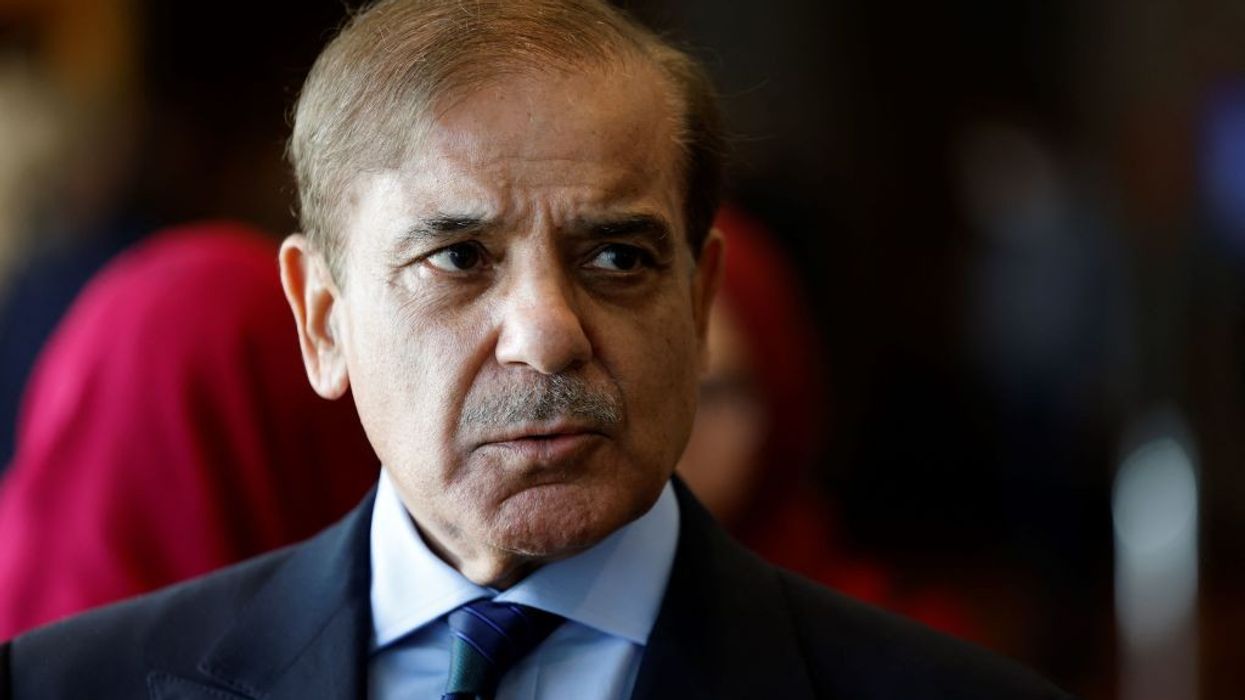Pakistan Prime Minister Shehbaz Sharif has said that his government has “no other option” but to implement the International Monetary Fund (IMF) programme to revive the cash-starved economy.
He regretted that if the government wanted to give any subsidy in any sector, it had to go to the IMF "which is a factor and a painful reality", the state-run Associated Press of Pakistan quoted Sharif as saying during a meeting on Tuesday.
He said the coalition government never wanted to transfer the burden of price hikes to the people but added that the country would have to implement the IMF programme as “they had no other option”.
The prime minister also said that the agreement with the IMF was blatantly breached by the Imran Khan-led PTI government in the past.
Cash-strapped Pakistan revived a stalled $6 billion IMF programme this year which was initially agreed upon in 2019 but is finding it hard to meet the tough conditions of the Washington-based global lender. There are reports that the IMF may not release more funds under the programme until the pledges made by the government are met.
Pakistan and the IMF had a round of engagement on November 18 but could not finalise a schedule for formal talks on the overdue ninth review.
The IMF board in August approved the seventh and eighth reviews of Pakistan's bailout programme, allowing for a release of over $1.1 billion.
The much-needed bailout package from the IMF helped Pakistan avert an imminent default, amidst the persisting political uncertainty and the devastating floods that have displaced more than 33 million people.
Shehbaz also said that they had devised a plan to immediately convert all the federal government entities’ buildings to solar power by April next year to slash the country’s fuel import bill of around $27 billion.
Unveiling further details, the prime minister said that the procedures for conversion of solar power should be fast-tracked as they had set April 2023 as the timeline for the implementation of this plan.
He also urged all the relevant authorities and stakeholders to complete the required process by the end of April next year and meet the timeline which had been set.
“Consider it as our political, social, national and religious duty to implement it as soon as possible,” he opined.
“It is the only option for our survival as a nation,” he added.
The prime minister said with these urgent measures, they would be able to generate 300 MW to 500 MW of cheap power, thus reducing the import bill worth billions of dollars each year.
The prime minister said that the process for the generation of 10,000 MW of solar power in the country had already commenced and such a conversation by the federal government buildings would be the first phase.
Enumerating the economic challenges faced by the country due to skyrocketing fuel and gas prices after the Russia-Ukraine conflict, he said that developing countries like Pakistan had to bear the brunt.
He said under the China-Pakistan Economic Corridor (CPEC), coal and gas-fired projects were completed by the Pakistan Muslim League-Nawaz (PML-N) government in 2015 to overcome 20 hours of crippling power outages in the country.
Pakistan is in need of funds to bolster its struggling economy, amplified by devastating floods that affected the country's agriculture and infrastructure in recent months.
On December 23, Finance Minister Ishaq Dar held a virtual meeting with the IMF mission chief, Nathan Porter, aimed at finding a common ground to address the power sector issues, the Express Tribune newspaper reported.
The power sector has become the biggest stumbling block in the way of the 9th IMF review mission, which is the prerequisite for the approval of the next loan tranche of over $1.1 billion.
As per the revised schedule, the IMF board was supposed to approve the 9th review and release of the tranche by November 3.
However, due to Pakistani authorities' failure to meet the programme conditions for the 9th review, the global lender has not yet dispatched a mission to Pakistan.
The IMF is seeking a clear roadmap for the power sector, taxation and addressing any fiscal imbalances due to three key factors – higher than agreed circular debt during the current fiscal year, higher than agreed primary budget deficit and expenses on flood rehabilitation and reconstruction, the report quoted the sources as saying.
(PTI)




